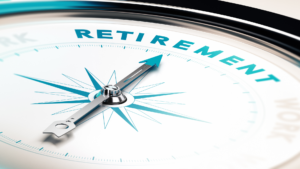Small business retirement planning is an essential aspect of financial security for entrepreneurs and their employees. In this article, we’ll delve into the complexities of various elements that can influence a small business owner’s retirement plans, such as overvaluation, personal savings options and enhancing your company value prior to sale.
We’ll discuss the consequences of inflated valuations on a business owner’s retirement plan and how industry best practices can help determine realistic valuations. Furthermore, we will explore tax advantages and disadvantages associated with different types of personal retirement plans in comparison to relying solely on proceeds from selling your business.
Additionally, creating a financial floor through diversified investments beyond just owning a small business is crucial for long-term stability. We will also provide tips on preparing your company for sale by avoiding common mistakes made during valuation estimation and working with experts who specialize in calculating accurate valuations.
Last but not least, we will offer insights into identifying areas within your enterprise that can be improved or streamlined as well as marketing strategies to enhance public perception and attract potential buyers – all contributing to successful small business retirement planning.
Table of Contents
- Overvaluation and Its Impact on Retirement
- The Consequences of an Inflated Valuation on a Business Owner’s Retirement Plan
- How Industry Best Practices Can Help Determine a Realistic Valuation
- Personal Retirement Plans vs Business Sale Proceeds
- Creating a Financial Floor Through Personal Retirement Planning
- Preparing Your Business for Sale with Realistic Valuations
- Maximizing Your Business Value Before Selling
- FAQs in Relation to Small Business Retirement Planning
- Conclusion
Overvaluation and Its Impact on Retirement
Many small business owners overvalue their businesses, which can lead to unrealistic expectations when planning for retirement. This section will discuss the dangers of overvaluation and how it affects your financial stability during retirement.
The Consequences of an Inflated Valuation on a Business Owner’s Retirement Plan
An inflated valuation can have serious repercussions on a small business owner’s retirement plans. Overestimating the worth of your company may result in insufficient funds for living expenses or pursuing other interests after selling your business. If you plan to rely on the sale proceeds as your primary source of income during retirement, an overestimation of the worth of your company could lead to financial difficulty if it fails to meet expectations.
To avoid such scenarios, it is essential to obtain an accurate assessment of your company’s true market value by consulting with industry experts or using established valuation methods.
How Industry Best Practices Can Help Determine a Realistic Valuation
- Comparative analysis: Compare similar businesses within your industry that have recently been sold or are currently listed for sale. Analyzing these transactions provides valuable insights into current market trends and helps establish reasonable price ranges based on real-world data.
- Earnings-based approach: Calculate the present value of future cash flows generated by your company using discounted cash flow (DCF) analysis or capitalization rates applied to historical earnings figures.
- Tangible assets: Assessing tangible assets like equipment, inventory, and property is crucial in determining a fair market value for asset-heavy companies.
- Intangible assets: For businesses with significant intangible assets like intellectual property, customer relationships, or brand reputation, a thorough evaluation of these factors is necessary to arrive at an accurate valuation. This can be done using methods such as the relief-from-royalty approach or excess earnings method.
In conclusion, understanding the potential impact of overvaluation on your retirement plans is crucial for small business owners. By following industry best practices and obtaining realistic valuations for your company, you can better prepare yourself financially for life after selling your business.
As business owners, it is critical to be aware of the long-term repercussions an overvalued valuation may have on their retirement plans. Therefore, it is essential to consider how personal retirement plans may be affected by the sale proceeds when making decisions about future investments and planning for retirement.
Personal Retirement Plans vs Business Sale Proceeds
As a small enterprise proprietor, it is imperative to devise an extensive retirement plan that does not solely depend on the proceeds of selling your business. Relying only on the proceeds from selling your company can be risky and may not provide you with enough financial security during retirement. In this section, we’ll discuss various types of personal retirement plans and compare them to relying exclusively on the sale price of your business.
Tax Advantages and Disadvantages Associated With Various Types of Personal Retirement Plans
- Traditional IRA: Contributions are tax-deductible, but withdrawals in retirement are taxed as ordinary income. This type of account is suitable for those who expect their tax rate to be lower in retirement than it is now. Learn more about Traditional IRAs at Investopedia.
- Roth IRA: Contributions are made after-tax, but qualified withdrawals in retirement are tax-free. Roth IRAs work best for individuals who anticipate being in a higher tax bracket during their golden years or want flexibility when accessing funds without mandatory distribution requirements like traditional IRAs have. Read more about Roth IRAs at RothIRA.com.
- Solo 401(k): Designed specifically for self-employed individuals or small businesses with no employees other than owners/spouses; contributions can be both pre-tax (traditional) and post-tax (Roth). These accounts offer high contribution limits compared to other options, making them ideal for maximizing savings potential before retiring – find out more by visiting the IRS’ One-Participant 401(k) Plans page.
- Simplified Employee Pension (SEP) IRA: This plan allows business owners to make tax-deductible contributions on behalf of themselves and their employees, with flexible annual contribution limits based on income. SEP IRAs are a good choice for those who want an easy-to-manage retirement plan that benefits both the owner and their workforce – learn more at the Department of Labor’s website.
In contrast, relying solely on your business sale proceeds may expose you to potential financial risks due to market fluctuations or changes in your industry landscape. Additionally, there might be tax implications when selling your company that could reduce the net amount available for retirement purposes.
To ensure long-term financial security during retirement, it is crucial to diversify by incorporating personal retirement plans alongside any potential gains from selling your small business. To maximize your retirement income, it is advisable to diversify by supplementing any potential proceeds from the sale of your business with personal retirement plans.
Creating a personal retirement plan is essential for small business owners, as it can provide financial security and ensure that taxes are managed effectively. With proper planning and diversification, creating a strong financial floor through personal retirement planning can help secure your future.
Key Takeaway:
Small business owners should not solely rely on the sale of their company for retirement planning. Personal retirement plans, such as Traditional and Roth IRAs, Solo 401(k), and SEP IRA, offer tax advantages and diversification to ensure long-term financial security during retirement. Relying only on business sale proceeds can be risky due to market fluctuations and potential tax implications.
Creating a Financial Floor Through Personal Retirement Planning
Establishing a solid foundation through personal retirement planning ensures long-term financial security regardless of the final sale price achieved by selling your business. In this section, we’ll explore ways to create this “financial floor” while still growing your company.
Diversifying Investments Beyond Just Owning a Small Business
Investing in more than just a single small business is essential for guarding against risk and guaranteeing that you have multiple sources of revenue during retirement. Diversifying investments is crucial for mitigating risk and ensuring that you have multiple sources of income during retirement. Here are some strategies for diversifying beyond just owning your small business:
- Invest in stocks and bonds: A well-balanced portfolio should include both equities (stocks) and fixed-income securities (bonds). This helps spread out risk as different types of assets tend to perform differently over time.
- Create passive income streams: Rental properties or dividend-paying stocks can provide ongoing cash flow without requiring much active management on your part.
- Fund tax-advantaged accounts: Contributing to an Individual Retirement Account (IRA), Roth IRA, or employer-sponsored plan like a 401(k) allows you to grow wealth with potential tax benefits.
A pro financial consultant may be consulted to aid in formulating a retirement plan tailored to individual needs, such as age, risk appetite and fiscal objectives. They can help guide you toward the best investment strategy based on factors such as age, risk tolerance, and overall financial goals.
To further strengthen your financial floor before retiring from your business, it’s also essential to have an emergency fund in place. This should consist of three to six months’ worth of living expenses and can help cover unexpected costs or provide a cushion during economic downturns.
Lastly, don’t forget about insurance coverage as part of your retirement planning process. Ensure that your retirement planning process includes adequate health insurance coverage, as medical costs can become a significant burden in later life. Additionally, consider purchasing long-term care insurance if you’re concerned about the potential cost of assisted living or nursing home facilities later in life.
Constructing a financial cushion via individual retirement preparation is an essential measure for any small business proprietor, to guarantee their future stability. To further prepare your business for sale, the next heading discusses how to make sure you get accurate valuations of your company’s worth.
Key Takeaway:
To ensure long-term financial security, small business owners should establish a solid foundation through personal retirement planning by diversifying investments beyond just owning their business. This can be achieved by investing in stocks and bonds, creating passive income streams, funding tax-advantaged accounts, and working with a professional financial advisor. It’s also important to have an emergency fund in place and secure adequate insurance coverage for health care costs as we age.
Preparing Your Business for Sale with Realistic Valuations
Accurate valuations are essential when preparing to sell your small business so you don’t fall short during your golden years. Learn about methods used by professionals in determining true market values for companies before they’re put up for sale.
Common Mistakes Made by Entrepreneurs When Estimating Their Company’s Worth
Many small business owners make the mistake of overestimating the value of their businesses, which can lead to disappointment and financial instability during retirement. Some common errors include:
- Focusing solely on revenue without considering expenses or debt
- Ignoring industry trends and competition
- Basing valuation on emotional attachment rather than objective data
- Overlooking potential liabilities such as pending lawsuits or regulatory issues
To ensure a reliable valuation, enlisting the services of an experienced professional is essential. A qualified expert will help you determine an accurate value based on factors like cash flow, assets, growth potential, and risk assessment.
Tips on Working with Experts Who Specialize in Calculating Accurate Valuations
Selecting the right professional to assist with your valuation process is critical for ensuring a successful outcome. Here are some tips for choosing an expert:
- Look for Relevant Experience: Seek out professionals who have experience working with businesses similar to yours in size and industry.
- Check Credentials: Verify that your chosen expert has relevant certifications, such as being a Certified Business Appraiser (CBA) or Accredited Senior Appraiser (ASA).
- Ask About Their Methodology: Inquire about the methods used by your potential appraiser to calculate valuations. A reputable professional should be able to explain their approach clearly and provide examples from previous engagements.
Taking these steps can help ensure that you receive an accurate valuation for your business, which is crucial when planning for retirement. By engaging an experienced professional, you can be sure to make wise choices regarding your monetary future.
Preparing your business for sale with realistic valuations is essential to maximize the value of your company when it comes time to sell. By taking the necessary steps detailed here, you can guarantee that you receive a reasonable amount for your business and position yourself to achieve success in retirement. Now let’s move on to maximizing your business value before selling – an important step towards ensuring a successful transition into retirement.
Key Takeaway:
Small business owners need to accurately value their businesses before selling them in order to avoid financial instability during retirement. Common mistakes include focusing solely on revenue, ignoring industry trends and competition, basing valuation on emotional attachment rather than objective data, and overlooking potential liabilities such as pending lawsuits or regulatory issues. To ensure an accurate valuation, it is important to work with a professional who has relevant experience and credentials and can explain their methodology clearly.
Maximizing Your Business Value Before Selling
Ensuring you receive top dollar when selling your small business is crucial for a comfortable retirement. To achieve this, it’s important to maximize your business value before putting it on the market. In this section, we’ll discuss strategies for increasing the worth of your company in preparation for a successful sale.
Identifying Areas Within Your Business That Can Be Improved or Streamlined
Identify areas of your operations that can be optimized to make the business more efficient and valuable. This could include anything from upgrading equipment to streamlining processes or reducing overhead costs. Implementing these changes will not only make your business more efficient but also increase its overall value. Consider working with business mentors who can provide guidance and expertise in identifying potential improvements.
- Upgrade Equipment: Investing in modern technology can improve productivity and efficiency while reducing maintenance costs.
- Streamline Processes: Evaluate workflows and eliminate any bottlenecks that may slow down production or delivery times.
- Cut Overhead Costs: Look for ways to reduce expenses without compromising quality, such as renegotiating contracts with suppliers or outsourcing non-core tasks.
Marketing and Branding Efforts to Enhance Public Perception and Attract Potential Buyers
A strong brand image is essential when attracting buyers who are willing to pay top dollar for your business. Invest time into developing an effective marketing strategy that showcases the unique qualities of your products or services while highlighting customer satisfaction through testimonials, case studies, etc.
Here are some tips on enhancing public perception through marketing efforts:
- Create a professional website that highlights your company’s strengths and accomplishments.
- Develop a strong social media presence to engage with customers and showcase your brand personality.
- Promote positive customer reviews on various platforms, such as Google My Business or Yelp, to build trust among potential buyers.
In addition to marketing efforts, consider working with an experienced business broker who can help you identify the right buyer for your business. They will also assist in negotiating the best possible sale price based on their knowledge of market trends and comparable sales data. For more information about finding a reputable broker, visit the International Business Brokers Association (IBBA).
FAQs in Relation to Small Business Retirement Planning
What are the 5 pillars of retirement planning?
The five pillars of retirement planning include: 1) Social Security, which provides a government-backed income stream; 2) employer-sponsored plans like 401(k)s and pensions; 3) personal savings and investments, such as IRAs or brokerage accounts; 4) real estate or other alternative assets that generate passive income; and 5) insurance products like annuities. These components work together to create a diversified financial foundation for your retirement.
How to plan for retirement when you own your own business?
To plan for retirement as a small business owner, consider establishing a personal IRA or SEP-IRA, setting up an employer-sponsored plan like a SIMPLE IRA or Solo 401(k), diversifying investments beyond just owning the business, preparing the company for sale with realistic valuations, and working with experts who specialize in calculating accurate valuations.
What percent of small businesses offer a retirement plan?
Around 28% of U.S. small businesses offer some form of employee retirement benefits according to SCORE’s data from September 2023. This number varies depending on factors such as industry type, company size, location, and overall economic conditions.
Do small businesses offer retirement plans?
Yes, many small businesses offer retirement plans to their employees. Some common options include SIMPLE IRAs, SEP-IRAs, and Solo 401(k)s. These plans can provide tax advantages for both the employer and employee while helping workers save for retirement.
Conclusion
Small business owners must plan for retirement just like everyone else. However, they face unique challenges when it comes to valuing their businesses and determining how much they need to save for retirement. In this post, we will discuss the impact of overvaluation on a business owner’s retirement plan, tax advantages and disadvantages associated with various types of personal retirement plans, diversifying investments beyond just owning a small business, preparing your business for sale with realistic valuations, and maximizing your business value before selling.
It is essential for small business owners to comprehend these ideas so they can make educated decisions concerning their financial future. By working with experts who specialize in calculating accurate valuations and taking steps to improve their businesses’ value before selling them, entrepreneurs can maximize their returns and ensure a comfortable retirement.
If you are a small business owner looking to retire comfortably, SellMyBusiness123.com can help you prepare by providing expert advice on how to get your business ready. Reach out now to find out more about how our team can assist you in achieving a secure retirement by helping you find a safe pair of hands to transfer it to!




